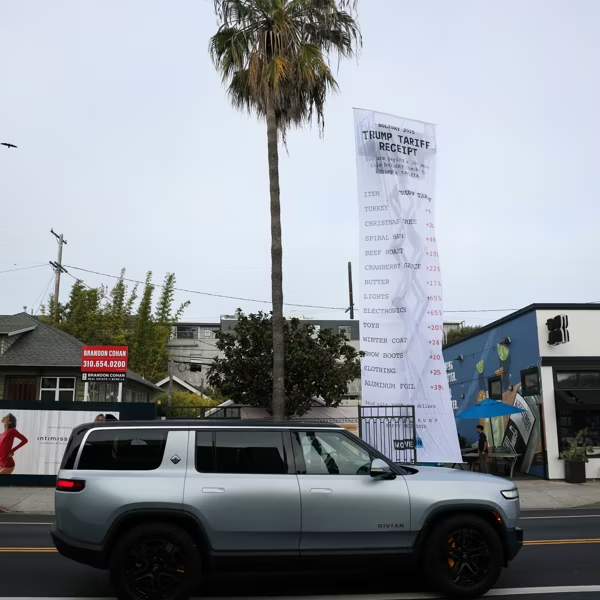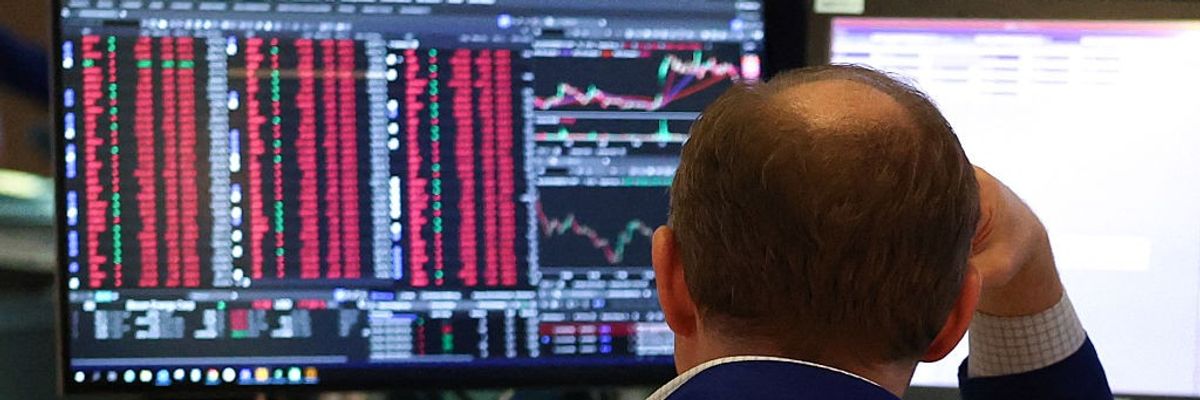U.S. President Donald Trump late Sunday openly embraced the global chaos sparked by his sweeping tariffs, careening headlong into a potentially catastrophic trade war as worldwide financial markets plummeted and American retirees began to panic.
In a post on his social media platform, Trump declared that his tariffs are "already in effect, and a beautiful thing to behold."
"Some day people will realize that Tariffs, for the United States of America, are a very beautiful thing!" Trump wrote as recent retirees and people near retirement expressed fear and astonishment at the swift damage the president's policy decisions have done to their investment accounts.
One retiree, a 68-year-old former occupational health worker in New Jersey, told NBC News that she is "just kind of stunned, and with so much money in the market, we just sort of have to hope we have enough time to recover."
"What we've been doing is trying to enjoy the time that we have, but you want to be able to make it last," the retiree, identified as Paula, said on Friday. "I have no confidence here."
Trump's post doubling down on his tariff regime came as Asian markets cratered and U.S. stock futures opened bright red, signaling that Monday will bring another broad sell-off in equities. One of Trump's top economic advisers claimed in a Sunday interview that the president is not intentionally crashing the stock market, even as Trump—returning from a weekend golf outing in Florida—characterized the tariffs as "medicine."
"I don't want anything to go down," the president said. "But sometimes you have to take medicine to fix something."
Bloomberg's John Authers wrote early Sunday that "if the 4.8% fall in S&P 500 futures at the Asian opening isn't reversed, then it's on course for its worst three-day selloff since the Black Monday crash of October 1987."
Though the stock market and the economy are not synonymous, economist Josh Bivens recently noted that they are currently "mirroring each other: Stock market weakness is reflecting broader economic weakness."
"While the stock market isn't the economy, the stock market declines we have seen in recent weeks are genuinely worrying," wrote Bivens, the chief economist at the Economic Policy Institute. "They are a symptom of much larger dysfunctional macroeconomic policy that will likely soon start showing up in higher unemployment and slower wage growth for the vast majority."




